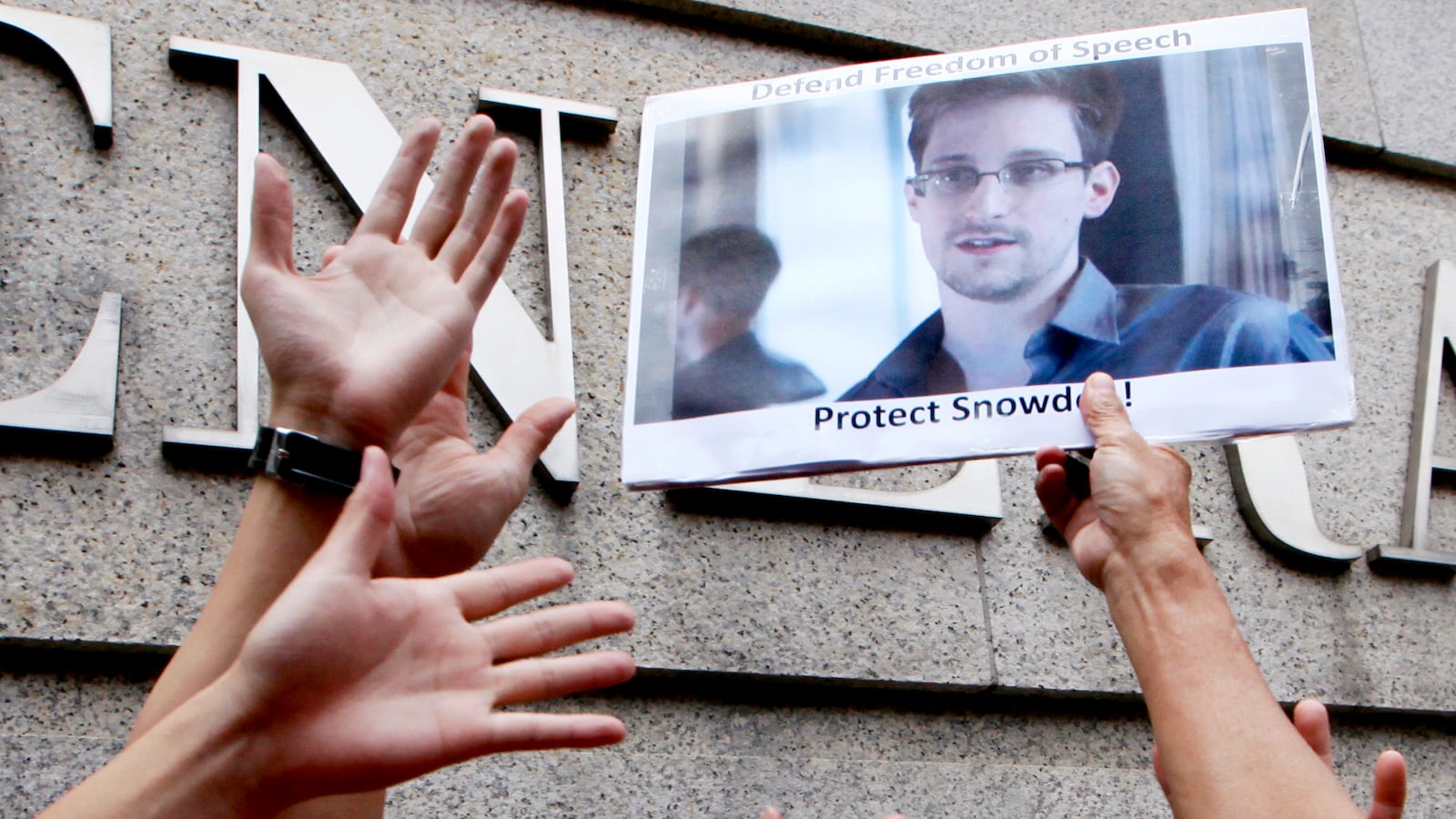Even before his plane touched down at Sheremetyevo airport amid speculation that his next stop was Havana, Edward Snowden had taken on a new identity. In the days since his leaks about NSA intelligence gathering, the prevailing notion of Snowden had gone from civil-libertarian hero to egotist gadfly before settling, for the better part of a week, into an accepted media denominator: enigma. His flight to Moscow offered Snowden one more role in the rapidly expanding cast of characters: Cold War reenactor.

Snowden’s China–Moscow–Maybe Havana itinerary recalled the bygone days when East and West were swapping dissidents, with fugitives necessarily turning a blind eye to the human-rights failings of their new allies. It’s been a long time since anyone looked at Russia with idealism—the country’s current declining population is fueled largely by out-migration of young people—but the Snowden affair echoes those familiar contradictions. If the decision to flee the United States for Hong Kong, which has an extradition treaty with the U.S., raised questions about Snowden’s strategic thinking, his departure for Moscow all but eliminated his moral positioning.
In 2010 I had dinner in the Russian capital with two reporters from Novaya Gazeta, the embattled Russian newspaper that frequently found itself at odds with the Putin government. The reporters spoke openly about Anna Politkovskaya, their murdered colleague whose death was likely precipitated by her reporting on Russian atrocities in the Chechen War. Politkovskaya was one of four reporters at the paper who had died violently. Just as I was leaving to return to the United States, another Russian journalist was attacked. The common presumption was that he had run afoul of the Medvedev-Putin regime.
Snowden’s decision to depart for Russia reasonably raised questions about what information he may have traded in exchange for safe passage but should reasonably make us wonder why he fled at all. If his primary motive for dispatching classified government information was to forestall the creeping arm of government surveillance, enlisting the assistance of China and Russia—two governments with an even feebler grasp on civil liberties than post-9/11 America—makes no sense. If, as some have argued, Snowden has shrewdly played off geopolitical tensions to avoid prosecution, he’s simultaneously offered a patina of moral standing to governments guilty of the same actions he criticizes and misunderstood the very logic of activism: that a cause is larger than the well-being of any single individual associated with it. Implicit within his actions is the idea that American civil liberties are more important than the lives of Russian dissidents. In exposing government secrets, Snowden wished to raise a number of points, but a backdoor endorsement of American exceptionalism was, presumably, not one of them.
Given a choice of undermining his argument or seeking the assistance of governments with human-rights records that are questionable even when graded on the sharpest of curves, Snowden’s only reasonable recourse would be to remain in the United States and face prosecution.

The cornerstone achievements in American rights were attainable precisely because their proponents refused to avoid consequences for their dissent. In 1920, Eugene Debs ran for president from behind bars to highlight his opposition to World War I and labor exploitation in the United States. During the civil-rights movement, the young activists of SNCC adopted a “Jail, No Bail” strategy not only because of the financial burdens of raising money but also because their willingness to remain in prison, to suffer for their cause, eroded the moral standing of the men responsible for their arrests. Nelson Mandela understood that point, opting to remain in prison for 27 years and refusing offers of release that hinged upon him renouncing his cause. More aptly, Daniel Ellsberg endorsed Snowden’s actions, but Ellsberg himself remained within the United States after he released the Pentagon Papers. Had he fled the country, the Nixon administration might not have pursued the actions that ultimately brought about its own demise. And shortly before her death, Politkovskaya was offered political asylum abroad. (She also held American citizenship and could have landed comfortably at an American think tank.) She opted to stay, believing her exit would be a victory for the authors of the inhumanity she dedicated her life to exposing.
None of this is to argue that Edward Snowden belongs in prison or a cemetery or that he would necessarily end up in either place. But there’s something to be said for the tradition of using a trial to highlight the political abuses of those in power. The footage of regular citizens hauled before the McCarthy committee, citing their constitutional rights as they were badgered and bullied, makes an unequivocal statement that unchecked power was at least as much of a threat to liberty as communism was.
This year marks the 50th anniversary of Martin Luther King Jr.’s “Letter From a Birmingham Jail.” A half-century after supporters smuggled King’s note out of the facility and oversaw its publication, it remains the clearest distillation of the meaning and implications of dissent. Edward Snowden is a figure of current events, but if he wishes to become a figure of history or, more crucially, advance the important arguments he has forced us to think about, he should return to the United States. “Dispatch From an Undisclosed Location” simply doesn’t carry the same weight.






